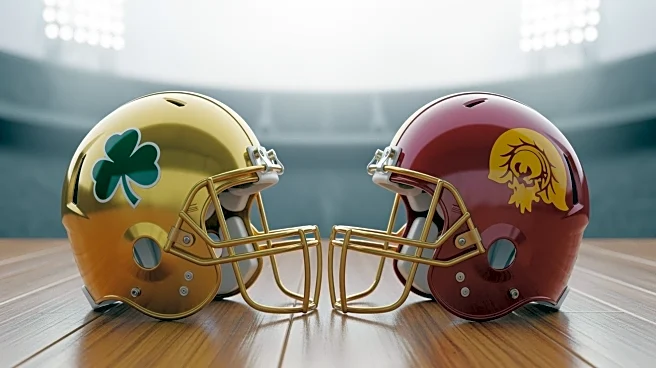What's Happening?
The longstanding football rivalry between the USC Trojans and Notre Dame is at risk of ending due to scheduling conflicts. The two teams, which have faced off for nearly a century, are not currently scheduled
to meet again. The blame for this potential end has been largely placed on USC, following Notre Dame's athletic director Pete Bevacqua's public statements. USC had proposed to renew the series for one year, but Notre Dame's narrative has painted USC as avoiding the rivalry. Historically, Notre Dame has also ended rivalries, such as with Michigan in 2012, due to scheduling changes. USC has attempted to maintain the series despite its new commitments in the Big Ten, but Notre Dame has been resistant to altering the traditional timing of the games.
Why It's Important?
The potential end of the USC-Notre Dame rivalry highlights the challenges faced by college football programs in maintaining traditional matchups amid evolving conference alignments and scheduling demands. This development could impact fan engagement and the historical significance of college football rivalries. For USC, maintaining strong non-conference games is crucial for playoff considerations, especially as they navigate a more demanding Big Ten schedule. The situation underscores the broader tension between preserving tradition and adapting to new competitive landscapes in college sports.
What's Next?
Both USC and Notre Dame athletic directors have expressed optimism about reaching an agreement to continue the rivalry. However, unless USC is willing to make concessions, the public pressure will likely remain on them. The outcome of these negotiations could set a precedent for how traditional rivalries are managed in the future, particularly as conferences expand and scheduling becomes more complex.









